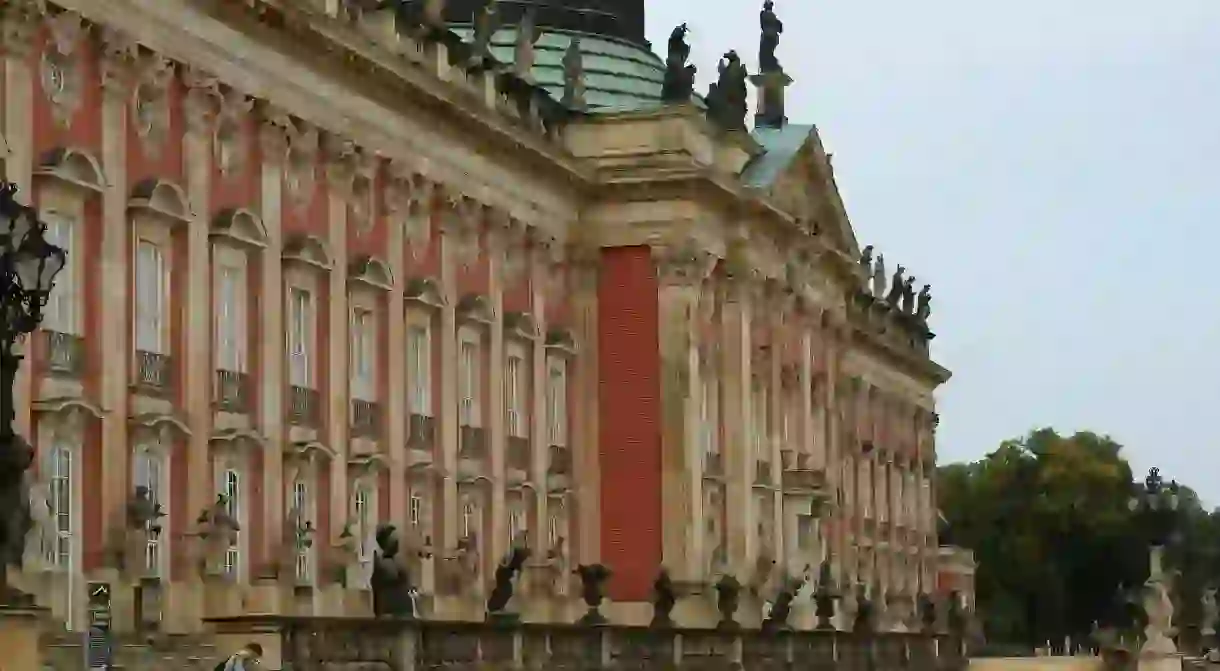9 Best Things To See & Do In Potsdam

Only about 35km outside the center of Berlin, Potsdam is a favorite day trip of many. Known for its gardens and palaces, this quaint and picturesque town is a welcome escape from the hustle and bustle of city life. The historic architecture and abundance of greenery are pleasant reasons enough to visit, but it’s these eight particular points of interest that keep visitors coming back.
Sanssouci
Building

New Garden
Architectural Landmark
Potsdam is famous for both its palaces and its gardens. Spanning over 100 acres in area, the New Garden, located just east of Sanssouci promises plenty of its own gems as well. Plus, the New Garden is situated right on the shore of the Heiliger See, giving it extra points in the picturesque department. It is decorated in 18th-century style with a decorous abundance of a British country estate, eventually taking on an even more intricate look over time. On the grounds of the New Garden, visitors will also find the marble palace, called Marmorpalais in German.
Filmpark Babelsberg
Cinema, Movie Theater, Museum, Theatre, Architectural Landmark
Dutch Quarter
Architectural Landmark, Historical Landmark
Potsdam’s Dutch Quarter, or Holländisches Viertel, is a lovely area for a stroll, as its streets are lined with red brick houses with gabled roofs and the occasional tuft of climbing vines. Built in the early 18th century, this area is the largest concentration of Dutch-style homes outside of the Netherlands. Plus, many of these buildings harbor small shops, cafes, and restaurants, making it popular with both tourists and locals alike. Maison Charlotte, a French-style bistro tucked in one of the buildings in this quarter, is particularly excellent. Plus, Potsdam’s petite rendition of Brandenburger Tor is only a short walk away.
Alexandrowka
Museum
Potsdam has also had its share of Russian influences. The town, for instance, was briefly occupied by the Red Army following WWII. Prior to that, there was a small Russian colony here, which dates back to the 1820s. Comprised of just over a dozen quaint buildings, Alexandrowka allows visitors the unique opportunity to step back in time and catch a glimpse of Russian culture and aesthetics at this time. The colony itself was established to reflect the benevolent relationship between German and Russian rulers, and the buildings were erected in accordance with traditional architectural styles.
St. Nicholas' Church
Cathedral
Distinguishable by its turquoise dome, St. Nicholas Church, stands as an emblem for German architectural classicism. Located in Potsdam’s Old Market Square, it is designed in the shape of a Greek cross, and construction was completed in 1828. During WWII, St. Nicholas Church sustained significant damage during a Soviet-sanctioned bombing, requiring decades of reconstruction. Since 1981, however, the church has been reopened. Now it is home to a large parish, and it is possible for the public to attend mass here. In fact, the service is also known to have excellent musical accompaniment.
Schloss Cecilienhof
Building

Park Babelsberg
Park

Berlin, Germany
Architectural Landmark
From Potsdam it’s only a 45-minute drive or 20-minute train ride to the Germany capital, making Berlin the obvious choice for a day trip. The trendy metropolis offers myriad things to do: you can trace the historical remnants of the Berlin Wall and other sites of post-war Berlin and the GDR, uncover the archaeological and artisan treasures in the museums along the Museumsmeile, go bar-hopping in Kreuzberg, rummage through the bric-a-brac and handmade items of the Mauerpark flea market in Prenzlauer Berg, or dance the night away in Berghain and Watergate. Recommended by Marion Kutter













